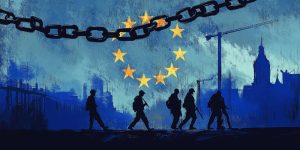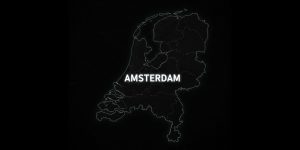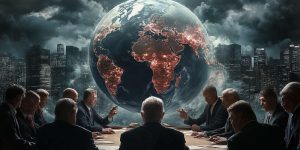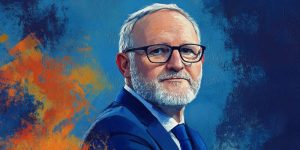The Illusion of Independent Media: Who Controls the News?

The idea of a free and independent press is a cornerstone of democratic societies. However, the reality is quite different: a vast portion of global media is owned by just a handful of corporate giants. In the United States, around 90% of all media is controlled by just six companies: Comcast, Disney, Warner Bros. Discovery, Paramount Global, News Corp, and Sony (Federal Communications Commission, “Media Ownership Report”, 2023). Europe follows a similar trend, with media conglomerates such as Bertelsmann, Vivendi, and state-funded broadcasters in the UK and Germany exerting disproportionate influence (Reuters Institute, “Digital News Report”, 2023).
In smaller countries, the situation is even more concerning. In the Netherlands, for example, over 80% of the printed press is owned by just two Belgian media corporations: DPG Media and Mediahuis (Commissariaat voor de Media, “Mediaconcentratie in Nederland”, 2023). This means that most newspapers, news websites, and magazines are managed by a limited group, significantly impacting news diversity.
Coordinated Messaging and Hidden Influence
The Role of International Institutions
It is not just media ownership concentration that is problematic but also the degree to which news outlets and publications share similar narratives. Large media groups and even public broadcasters frequently echo the same perspectives, which conveniently align with the interests of powerful international organizations such as the European Union, the United Nations, and the World Economic Forum (WEF).
These organizations influence the news through press releases, sponsored journalism initiatives, and indirect subsidies to media institutions. The WEF, for instance, has openly stated that it collaborates with media partners to “combat misinformation,” which in practice often means censoring dissenting voices on globalist agendas like climate policy and migration (World Economic Forum, “The Global Media Initiative”, 2023).
Censorship and Framing: How the Narrative is Controlled
In many Western countries, particularly in the US and Europe, dissenting opinions are increasingly suppressed or discredited through framing and fact-checking organizations that are often funded by the same elite networks. These organizations present themselves as neutral arbiters of truth but in reality have close ties to major media conglomerates, governments, and NGOs (Reuters Institute, “Who Funds Fact-Checking?”, 2023).
Voices critical of government policies, supranational organizations, or controversial social issues are often labeled “conspiracy theorists,” “misinformation spreaders,” or “far-right extremists”—regardless of the factual content of their criticism. This discourages independent journalism and narrows the spectrum of allowed opinions in public discourse.
The Situation in the United States and Europe
United States: From Press Freedom to Media Cartel
While the United States is known for its press freedom, the reality is that just a few corporations dominate most news media. The six largest media conglomerates not only own television channels but also major newspapers such as The New York Times and The Washington Post, as well as digital platforms like YouTube and Facebook, which play a crucial role in news dissemination (Federal Communications Commission, “Media Ownership Report”, 2023).
Independent media and alternative news sites are thus increasingly marginalized. Platforms like Twitter and YouTube routinely remove or demonetize content that does not align with the official narratives, while traditional media outlets collectively push the same messages (Bureau of Investigative Journalism, “The Silencing of Alternative Media”, 2023).
Europe: State Media and Supranational Influence
In many European countries, governments play a significant role in media control. Public broadcasters such as the BBC (United Kingdom), ZDF (Germany), and NOS (Netherlands) receive substantial state funding, which means their reporting rarely criticizes their own governments or the EU. In the Netherlands, media institutions receive millions of euros in subsidies, creating a journalistic climate where criticism of the government and the EU is rarely highlighted (Commissariaat voor de Media, “Mediabeleid en staatssteun”, 2023).
One glaring example is the role of the EU in media policy. The European Commission funds various fact-checking organizations and journalistic projects aimed at “combating misinformation,” but in practice, these initiatives often serve to suppress unwanted political opinions (European Journalism Observatory, “EU Funding and Media Control”, 2023). This undermines press freedom and leads to artificial uniformity in reporting.
The Negative Consequences of Media Concentration
Reduced Diversity in Reporting
When a small number of companies and governments dominate the media landscape, it leads to a lack of real plurality in reporting. Critical and alternative viewpoints receive less exposure, and journalists are increasingly discouraged from conducting independent investigations for fear of professional consequences.
Manipulation of Public Opinion
With media acting as a unified front, public opinion is systematically manipulated. By selectively emphasizing or omitting certain events, media companies shape how people think about key issues such as geopolitics, climate change, or public health. This directly influences elections and policy decisions in ways that benefit the power structures behind the media (Bureau of Investigative Journalism, “Media Manipulation Tactics”, 2023).
Censorship and Suppression of Free Speech
The rise of fact-checking and social media censorship has led to independent journalists and news organizations being increasingly censored, deplatformed, or financially penalized. This restricts freedom of speech and ensures that the only permitted “truth” is that which is sanctioned by major media companies and their political allies (World Economic Forum, “The Future of Media Regulation”, 2023).
Conflict of Interest Between Media and Politics
Many journalists and media executives have close ties to politicians and international institutions. In both the EU and the US, influential figures frequently transition between media and political institutions, leading to conflicts of interest where the press loses its watchdog role. This creates propaganda-like scenarios where critical journalism is increasingly replaced by agenda-driven reporting (Reuters Institute, “The Political Ties of Media Executives”, 2023).
References
- Federal Communications Commission, “Media Ownership Report”, 2023
- Reuters Institute, “Digital News Report”, 2023
- Commissariaat voor de Media, “Mediaconcentratie in Nederland”, 2023
- World Economic Forum, “The Global Media Initiative”, 2023
- Bureau of Investigative Journalism, “The Silencing of Alternative Media”, 2023
- European Journalism Observatory, “EU Funding and Media Control”, 2023
- World Economic Forum, “The Future of Media Regulation”, 2023
- Reuters Institute, “The Political Ties of Media Executives”, 2023


















